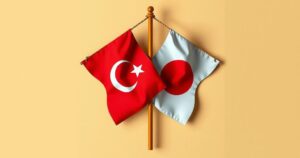Tunisia’s Presidential Election: A Step Toward Autocracy

Tunisians are voting in a presidential election criticized for its lack of fairness and freedom, marking a decline in the country’s democratic aspirations since the Arab Spring. Incumbent President Kais Saied has consolidated power and disqualified opposition candidates, leading to the arrest of political dissenters. The election is seen as potentially ending Tunisia’s democratic transition, with many citizens expressing disappointment in the president’s actions and questioning his commitment to reform.
On Sunday, Tunisians are participating in a presidential election that critics and observers universally regard as lacking both freedom and fairness. This electoral event represents a dark culmination of the nation’s prolonged quest for political liberation that initially ignited during the Arab Spring protests in 2011. Despite being the beacon of hope for democratic change in a region plagued by turmoil and military overthrows, Tunisia has experienced a worrying drift towards autocracy under the leadership of its incumbent president, Kais Saied. During the preceding years, widespread economic hardships have led segments of the population to rally behind Saied, whom they perceive as a decisive leader capable of navigating the economic recession. Experts, including Sarah Yerkes from Carnegie’s Middle East Program, note that while the election superficially appears to be a standard democratic process, it is fundamentally flawed. Yerkes emphasizes that this election may very well signal the conclusion of Tunisia’s democratic aspirations. Since his election in a landslide victory in 2019, Saied has progressively dismantled democratic institutions, following a controversial power consolidation initiated in July 2021 known as a “self coup.” He removed his prime minister, suspended the parliament, and subsequently asserted his authority to rule by decree. Voter turnout reportedly decreased in subsequent constitutional referendums, indicating widespread disenchantment with the electoral process. Currently, despite the interest from numerous candidates, Saied faces minimal resistance, having curtailed the independence of the elections commission and disqualifying his opponents. The situation has escalated, with numerous opposition figures imprisoned, including Rachid Ghannouchi, leader of the primary opposition party. Observers have noted an atmosphere of political repression where dissenters are subjected to harsh accusations merely for differing viewpoints. In contrast, governmental representatives assert that the electoral process remains legitimate, claiming that allegations against opposition candidates are credible. This election starkly contrasts with Tunisia’s preceding two elections viewed as relatively fair by international standards. As of now, over 170 individuals are detained on political grounds, including many members of Ghannouchi’s Ennahda party. Recently enacted changes to electoral law have further undermined the independence of the electoral commission, which Saied predominantly controls. Legal strategies employed by the president, who is an academic trained in constitutional law, have raised concerns regarding the legitimacy of his actions and the laws he enacts. With sentiment against Saied growing among segments of the population, there is a palpable disappointment, especially among younger generations who once viewed him as a beacon of hope for legal reforms and governance.
The background of this article lies in Tunisia’s post-Arab Spring political landscape, where the nation initially emerged as a model for democratic reform in the Middle East. However, since the popular uprisings that led to the ousting of former President Zine El Abidine Ben Ali, Tunisia’s democracy has been under significant threat. The current situation surrounding the presidential election is emblematic of a broader trajectory towards autocracy, as President Kais Saied has stripped democratic institutions of their power and implemented a series of legal maneuvers that reinforce his grip on authority. These developments are further contextualized by the ongoing economic challenges faced by Tunisians, which have influenced the public’s support for Saied despite his undemocratic tactics.
In summary, the upcoming presidential election in Tunisia is widely regarded as a critical juncture for the country, marking a potential end to its democratic processes. The significant consolidation of power by President Kais Saied, coupled with the systematic repression of dissent and the manipulation of electoral laws, has led to a situation that many perceive as an affront to the democratic values that emerged during the Arab Spring. With the political landscape severely altered and opposition figures under threat, the future of Tunisia’s democracy appears increasingly precarious, prompting concern among both local and international observers.
Original Source: www.washingtonpost.com







